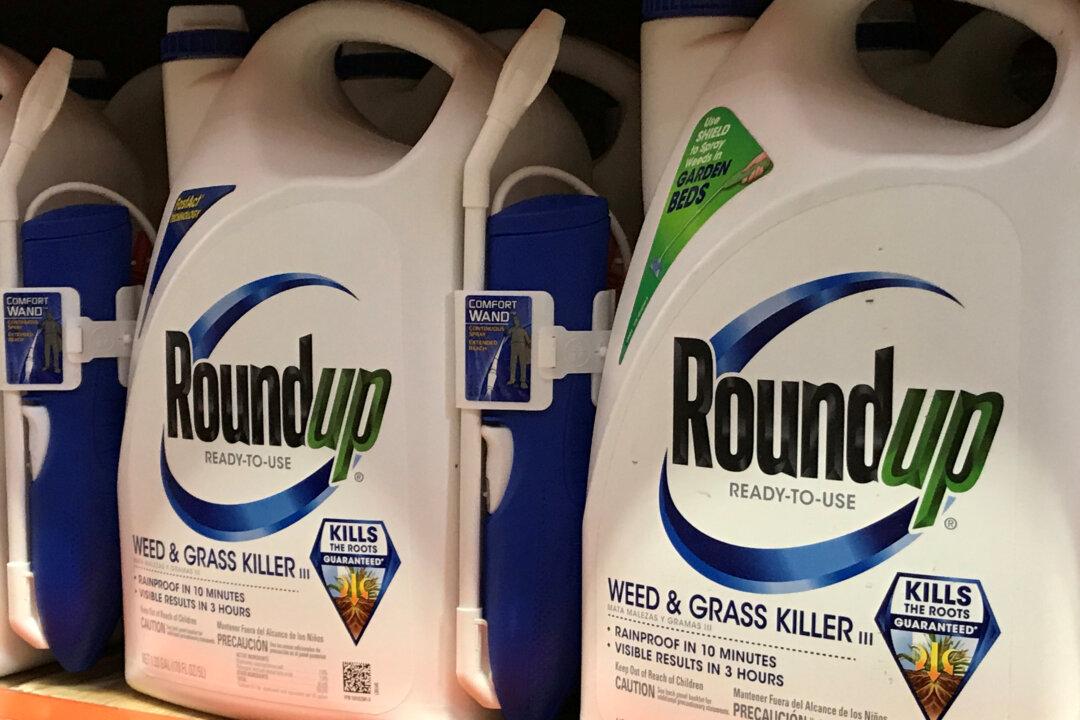A California court awarded $332 million in damages to a man who attributed his affliction with cancer from using a weed killer from agrochemical and agricultural biotechnology company Monsanto for a period of over three decades.
On Tuesday, a San Diego Superior Court jury awarded Mike Dennis, 57, from Carlsbad, California, damages in a lawsuit he filed against Monsanto. The lawsuit was related to the weed killer “Roundup” manufactured by Monsanto, a company owned by German mega-corporation Bayer. The suit alleged that Mr. Dennis used Roundup for 35 years on lawns and gardens, which eventually led to him contracting non-Hodgkin’s lymphoma, a type of cancer that forms in the lymph system. He was diagnosed with the disease in 2020.





